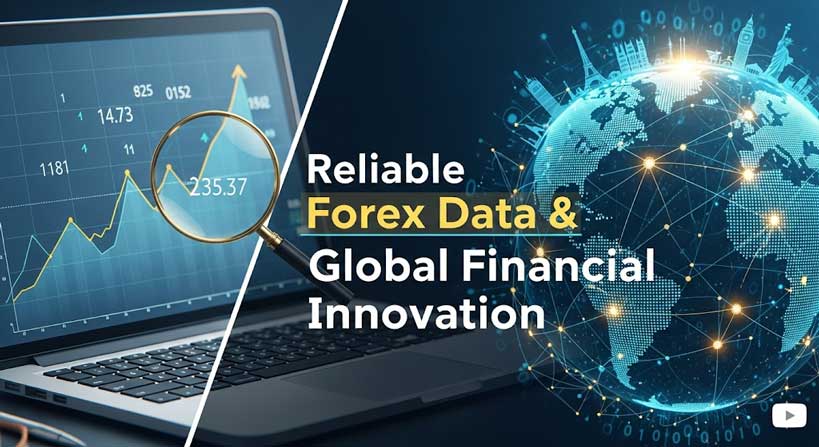The foreign exchange market (forex) is not only the largest financial market in the world, it is also the one most tightly interwoven with everyday life. From international trade agreements to the cost of sending remittances home, currency exchange rates have a direct effect on individuals, businesses, and entire economies. In a world where trillions of dollars are exchanged daily, one thing becomes clear: accurate, real-time forex data is the foundation of informed decision-making.
Why Forex Data Is More Than Just Numbers
Forex data does more than tell us how much one currency is worth against another. It reflects global confidence, geopolitical stability, and the interconnectedness of markets. For businesses operating internationally, even small shifts in exchange rates can impact profit margins, supply chains, and customer pricing. For individuals, changes in currency values affect the affordability of travel, imported goods, and international transfers.
In such a context, reliable forex data is not a luxury—it is a necessity. Without trustworthy data, businesses may miscalculate risks, traders may make poor decisions, and organizations may lose credibility with their audiences.
Challenges of Accessing Quality Data
Historically, access to real-time forex information was restricted to major banks and financial institutions. Retail traders and small businesses often relied on delayed, incomplete, or inconsistent data. This gap created inefficiencies and unfair advantages in the market.
Modern fintech platforms are working to close this gap by offering transparent and accessible solutions. Through application programming interfaces (APIs), developers and companies can now access structured forex data directly within their platforms. This makes innovation faster, cheaper, and more reliable.
A Practical Resource for Currency Market Information
One example of this new generation of tools is a specialized resource for currency market information available at Finage. By offering real-time and historical forex data in standardized formats, platforms like this empower startups, established fintech firms, and even educational institutions to integrate reliable information into their products and services.
Practical use cases include:
- Trading platforms: providing real-time exchange rates and analytics.
- E-commerce companies: displaying accurate conversions for international customers.
- Educational tools: helping students understand macroeconomic principles through live data.
- Financial journalism: enriching articles with interactive, data-driven context.
The Broader Impact
The democratization of forex data represents more than just an upgrade in technology. It is part of a larger movement toward transparency, accessibility, and fairness in global finance. Just as sustainable business practices are becoming the standard in environmental policy, data transparency is becoming the standard in financial innovation.
By providing accurate, reliable, and developer-friendly access to forex data, platforms like Finage enable a wide range of organizations to participate in markets that were once dominated by only the largest institutions.
Looking Forward
As digital currencies and new financial instruments continue to emerge, the role of forex data will only grow in importance. Businesses and individuals will require even faster, cleaner, and more comprehensive insights. Having access to reliable resources ensures they are not just reacting to changes but are prepared to anticipate and navigate them.
In this way, forex data becomes more than a technical necessity—it becomes a strategic asset for shaping the future of global finance.




